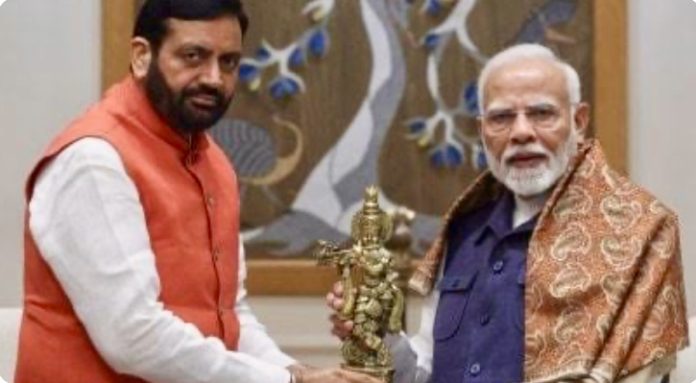The BJP, facing anti-incumbency sentiment, executed a masterstroke by consolidating non-Jat votes to secure a crucial victory in the Haryana by-election. While pollsters predicted a Congress sweep, they failed to recognize the underlying discontent against the Congress' overemphasis on the Jat community.
The Jats, similar to the Reddys of Andhra Pradesh and Telangana, are a politically dominant farming community. Excluding a few instances, the state has been largely ruled by Jat leaders like Devi Lal, Bansi Lal, Bhajan Lal (a Bishnoi, a Jat sub-caste), and Hukum Singh as Chief Ministers.
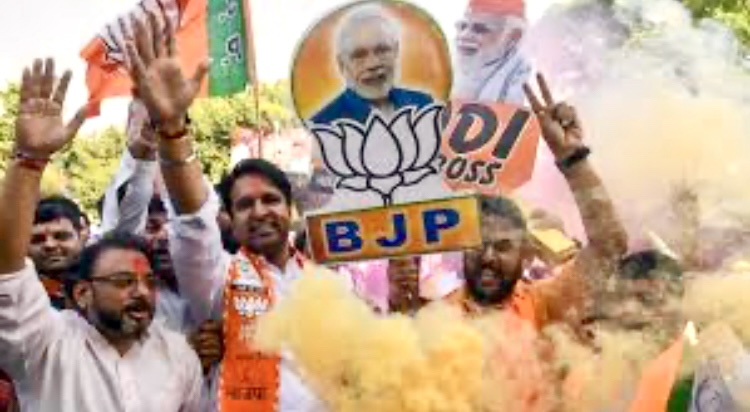
Sensing an opportunity, the BJP consolidated non-Jat votes, particularly from the Ahir and Gujjar communities, to offset the Congress, which was supported by Jats, SCs, and Muslims. The BJP's strategy to counter anti-incumbency began before the Lok Sabha elections, when two-time Chief Minister M. L. Khattar was replaced by Naib Singh Saini, an OBC leader.
The new Chief Minister announced an eight percent reservation for OBCs in local body elections and introduced various incentives for backward communities and SCs.
Congress focus on Jat related issues
The Congress focused on farmers' issues, the Agniveer scheme, and winning back the trust of the Jat community. However, nothing worked, and for the third consecutive time in 57 years, the BJP returned to power. The Congress openly played the Jat card without gauging the sentiment of people who were averse to having a Jat as Chief Minister. The Congress high command aligned with former Chief Minister Bhupendra Singh Hooda, allocating 73 out of the 90 seats to his preferred candidates.
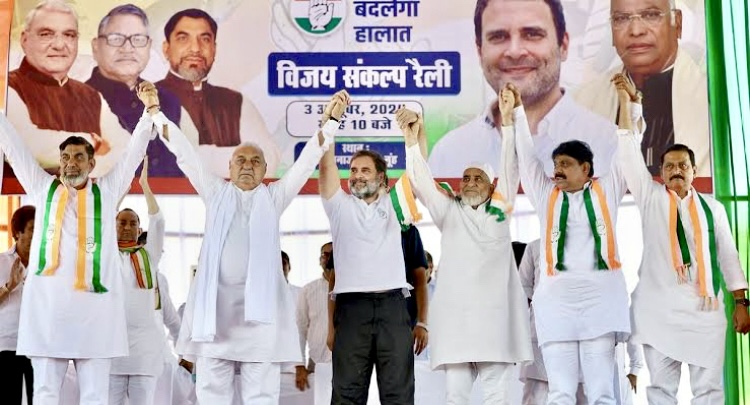
The party relied heavily on Dalit votes, but the rivalry between Hooda and Kumari Selja, a prominent Dalit leader, intensified when Selja was sidelined during the campaign. Selja had been instrumental in the Congress's recent Lok Sabha success, where the party won five out of ten seats.
The Congress began its campaign well, initially consolidating Jat votes in its favor. However, BJP strategists, led by former Rajasthan BJP president Satish Poonia—a Jat himself—quickly mobilized party workers to consolidate non-Jat votes.
This move resonated strongly, particularly in the Ahirwal region bordering Delhi, where Yadavs came out in large numbers to support the BJP, hoping that Union Minister Rao Inderjit Singh, son of former Haryana Chief Minister Rao Birendra Singh, could become Chief Minister. The Yadavs did not want another Jat-led government after ten years under Bhupinder Hooda.
Hooda, along with AICC General Secretary Ajay Maken and election in-charge Ashok Gehlot, failed to grasp the impact of Congress rebels contesting in 15 seats, which led to a division of votes in key constituencies. While farmers' issues did not resonate in Haryana, they gained traction in areas bordering Punjab, where Congress won eight seats, with INLD and BJP winning one seat each.
Congress did much less than expected
The Congress aimed to win the majority of the 17 SC-reserved seats but had to settle for a split with the BJP. Congress won nine seats, while the BJP secured eight, indicating that SC votes also shifted towards the BJP—a significant setback for Congress. In the Jat-dominated belt of 25 seats, the BJP won 13 seats, Congress 10, and Congress rebels claimed two. In 2019, Congress had won 13 seats in the Jat belt, while the BJP only managed six.
With both Jat and SC votes not aligning with Congress as expected, the BJP was poised to win the electoral battle. Out of 27 urban seats, the BJP secured 17, Congress won eight, and independents won two. The BJP dominated in rural areas as well, winning 33 out of 63 rural seats, while Congress secured 29 and others won one. Thus, the BJP outperformed Congress in both urban and rural constituencies.
According to Renu Mittal, a Delhi-based political commentator, non-Jats have historically suffered whenever the state was led by a Jat Chief Minister. They feared that if Congress won, Hooda would return to power, and the Jats would harass non-Jats again. The BJP's micro-management was superior to that of Congress, and smaller parties like INLD, BSP, JJP, and Chandrashekhar Azad's party siphoned off about three percent of Congress votes, contributing to its defeat.
BJP factored in winnability
The BJP denied tickets to 14 sitting MLAs, including four ministers, and its strategy paid off, as it won 12 out of the 14 reconfigured seats. The BJP also fielded 23 new candidates, winning 12 of those seats.
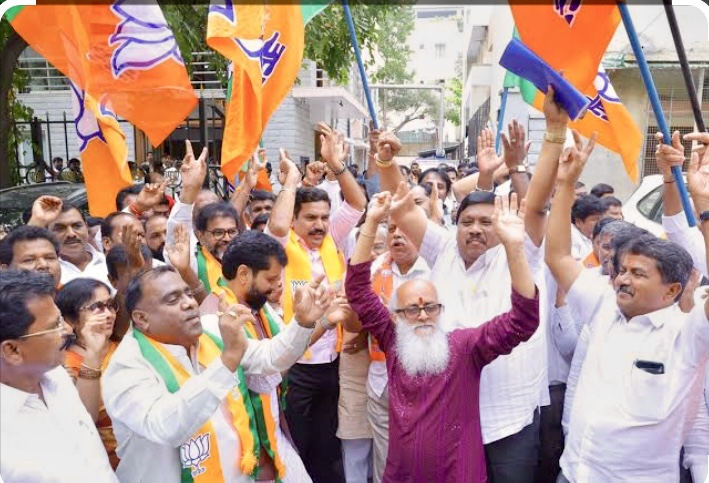
The Devi Lal clan, traditionally influential in the state, faced a major setback. Former Deputy Chief Minister Dushyant Chautala, grandson of Om Prakash Chautala and son of Ajay Chautala, finished fifth. Eight members of the late Devi Lal's family contested, but only two emerged victorious: Abhay Chautala's son Aditya and great-grandson Arjun Chautala. Similarly, late Bansi Lal's daughter-in-law Kiran Choudhry, who left Congress to join BJP, was delighted to see her daughter Shruti Choudhry win for the BJP. On the other hand, late Bhajan Lal's grandson, Bhavya Bishnoi, recently married to an IAS officer, lost.
The Congress will need to restructure its organizational base in the state and seek support from other communities to achieve electoral success in the future.
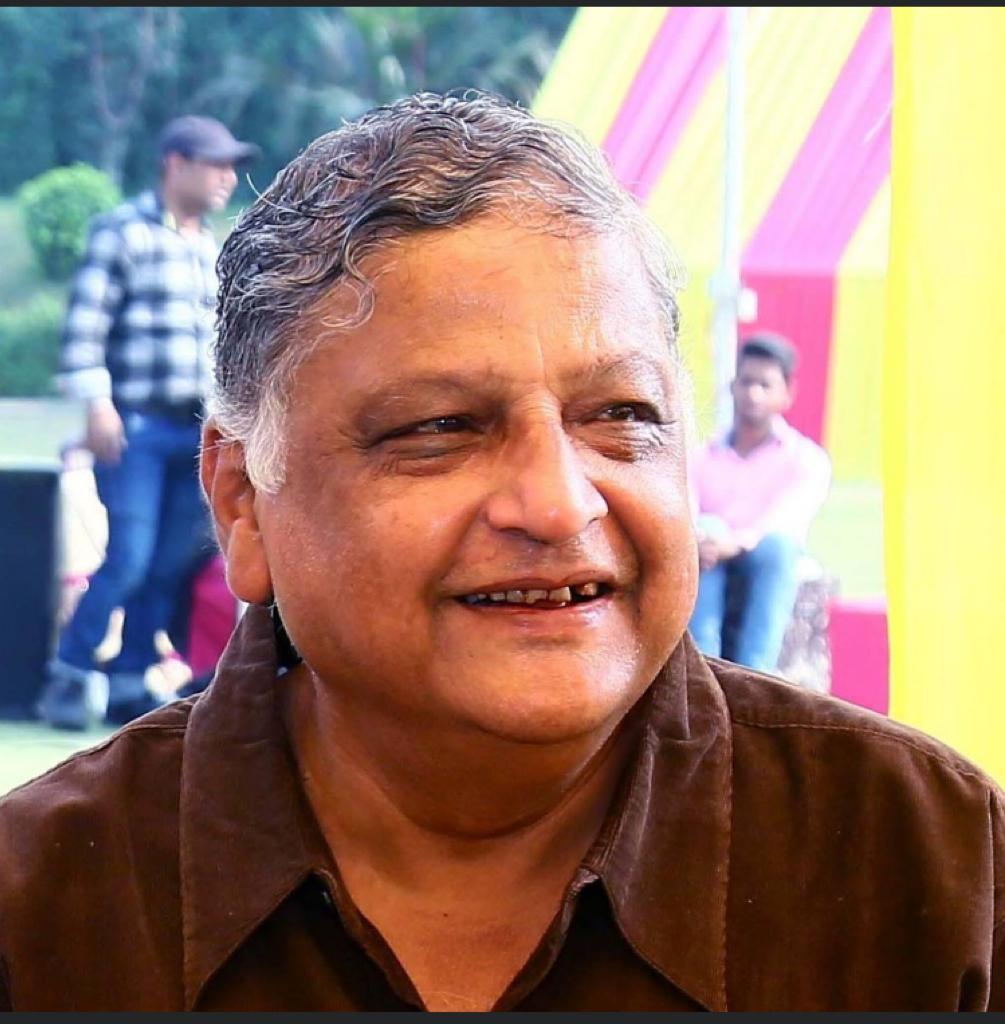
Prakash Bhandari is a veteran journalist with over 50 years of experience. He has worked with The Times of India for 30 years and contributed to leading publications as well as international news agency AFP.


